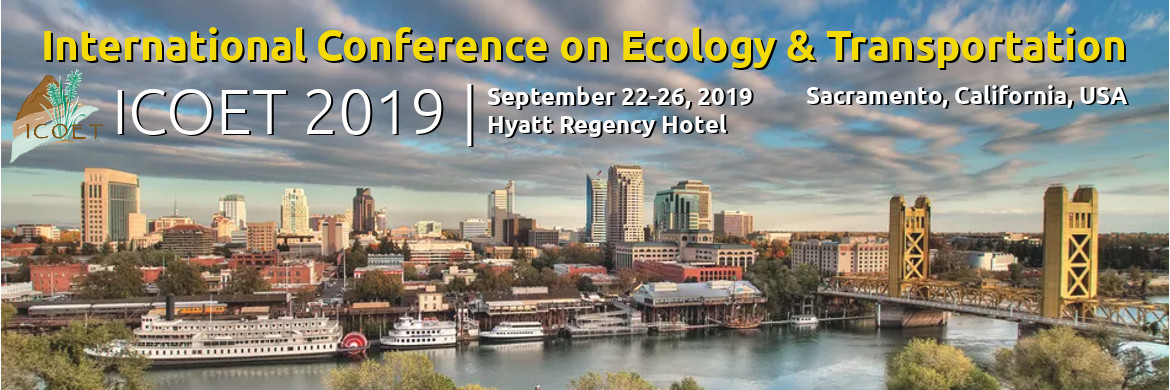Panel
- Liz O'Donoghue, Nature Conservancy
- William Craven, chief consultant of the Senate Natural Resources and Water Committee
- Abby Ramsden, The Nature Conservancy
- Adam Garcia, Greenbelt Alliance
- Laura Thompson, Metropolitan Transportation Commission
- India Brookover, Southern California Association of Governments
Overview
A greenprint is a science-based strategic conservation plan and/or tool that reveals the economic and social benefits that parks, natural resources and working lands provide communities. Greenprints are an emerging and innovative tool that easily serves up conservation related information to infrastructure agencies, developers, land use planners and stakeholders on the multiple benefits provided by natural infrastructure. Those benefits include healthy recreation, habitat protection and connectivity, clean water, food security, carbon sequestration, flood risk protection and increased resilience to climate change. Greenprints are an effective and actionable way to connect the contributions of natural and working lands to the ecosystem, the economy, and local communities to benefit people and nature. About 50 greenprints have been developed throughout the country, representing different goals, drivers, users and land pressures, and guided by different stakeholders and approaches. They are also different; some are static conservation plans, heat maps of multiple benefit conservation priorities, or online tools that allow users to understand the conservation values in a given place. Greenprints are effective when they are public-facing and can educate decision makers, stakeholders and the public on the value of natural and working lands in their region, and when they are integrated into land use and infrastructure agency plans, practices and projects, closing the information gap between conservation practitioners and infrastructure agencies, land use planners and developers.
Regional transportation agencies benefit from easy and comprehensive access to conservation data to support their sustainability goals, to reduce risk from regulatory requirements and stakeholder opposition when developing plans and projects, to build resilience into the transportation network, to assist with mitigation goals and strengthen community relationships. However, data is often difficult to obtain, interpret and use effectively and is rarely comprehensive to capture the wide range of natural resource values represented in a diverse landscape, such as habitat, water, agriculture, carbon, recreation and urban areas. Greenprints enable decision-makers to understand conservation values and opportunities to maximize benefits and minimize conflicts in their plans and projects. Greenprints are an important and actionable method for identifying, supporting and integrating conservation information and strategies into regional transportation agencies' goals, plans, programs and projects. Speakers from transportation agencies, conservation organizations and the California Legislature will present on the what, why and how of greenprints and greenprints' role in meeting conservation and transportation goals; we will have an interactive Q&A and host an interactive session for audience members to test drive greenprints on laptops at the end of the session.
Liz O'Donoghue is Director of the Sustainable Development Strategy the Nature Conservancy (Calif) focusing on innovative mitigation approaches, greenprints, sustainable land patterns and transportation policy. She serves on advisory councils for Caltrans' transportation plan, Bay Area Open Space Council and ClimatePlan. Prior to TNC, Liz worked for Amtrak West and US Senator Frank Lautenberg. She holds a B.A from Oberlin College & a certificate in Bus.Admin. from U.C. Berkeley Ext.
William Craven is the chief consultant of the Senate Natural Resources and Water Committee which has jurisdiction over legislation pertaining to issues such as water, flood policy, mining, forestry, endangered species and wildlife, state lands and conservancies, state parks, coastal protection and ocean policy. He is the Senate’s designee to the CA Parks and Recreation Commission and Ocean Protection Council. He staffed SB 375 while Senator Darrell Steinberg was the chair of the committee.
Abby Ramsden is Project Director at The Nature Conservancy (Calif) focusing on conservation transactions, habitat restoration, collaborative conservation, greenprint development, land use law and mitigation. Prior to joining TNC, Abby was a land use attorney working on conservation transactions and CEQA/NEPA compliance. Abby holds a B.A. from Williams College and a J.D. from UC Hastings.
Adam Garcia is Planning & Research Director at Greenbelt Alliance leading cutting-edge research initiatives, public policy and mapping services, including the innovative At-Risk report. He brings experience learning from and helping develop sustainable communities in Los Angeles, Santa Barbara, the UC System, Costa Rica, Kenya, Havana, Bogotá, and Oaxaca. He earned a B.S. in Environmental Studies at UC Santa Barbara, an M.A. in Urban Planning at UC Los Angeles and is a LEED Accredited Professional.
Laura Thompson is as Assistant Planning Director with the Metropolitan Transportation Commission, managing the Bicycle-Pedestrian-Environment unit. She provides strategic direction on a variety of regional Bay Area programs, including the San Francisco Bay Trail, San Francisco Bay Area Water Trail, Priority Conservation Areas, Active Transportation and Bike Share. Prior to working at MTC/ABAG, Laura was a planner for San Mateo County and worked at the American Planning Association. Laura holds a B.A. from Miami University and a Masters in Urban Planning and Policy at University of Illinois - Chicago.
India Brookover is Associate Regional Planner for the Southern California Association of Governments, leading SCAG's Natural & Farmlands Conservation Strategy, Greenprint project, annual SCAG sustainability awards and the Toolbox Technical Training Program. Prior to joining SCAG, India was a Researcher & Designed at UC Extension - Los Angeles helping to compile an urban agricultural study and map over 1,000 sites in Los Angeles County. Before that, India worked at the UCLA Lewis Center for Complete Streets, the LA County Bicycle Coalition and the South Bay Workforce Investment Board. India holds a B.A. from UC Santa Cruz and a Masters in Urban and Regional Planning from UCLA.
